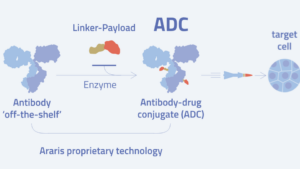
IMI launches €80m call
The Innovative Medicines Initiative II has earmarked €80m for pre-competetive research improving the pharmaceutical industry's productivity.
The new call of the joint undertaking of the European Commission and the Big Pharma federation EFPIA puts new open access tools for drug development, obesity, and the environmental impacts of medicines in the limelight of its new call for proposals.
Why "Open access tools for the genetics of disease?" Though third generation technology has recently be added to the NGS (next generation sequencing) technology toolbox of world leader Illumina, the EFPIA has the impression that the toolbox for investigation of genetically triggered diseases, aka gene function in a disease process, must be expanded. IMI2 thus aims to create a set of open access tools together with SMEs and academic researchers to facilitate the study of 1,000 of the 3,000 genes thought to play a role in disease and that are druggable.
"f we want to enjoy the benefits of the genomic revolution, we have to develop tools to study in detail the genes that influence our health," said Pierre Meulien, IMI Executive Director. "By taking an open access approach, the new topic launched as part of today’s Call for proposals will maximise the impacts of its results by making it possible for researchers worldwide to access and use them in their own work."
Except sports and healthy nutrition, currently there is no curative treatment for the 650 million obese people globally. Optimising future obesity treatment aims to better understand obesity as a disease by identifying subgroups of people with obesity that might pave the way for better, more personalised prevention and lifestyle interventions, as well as treatments for obesity and its complications. The project will also focus on diabetes (both types 1 and 2) as examples of conditions that are influenced by obesity.
As some active ingredients from medicines persist in nature, environmental impacts of medicines have become a hot topic, even for regulators. As they can prove harmful to wildlife and ecosystems,in the EU, new medicines are required to undergo an environmental risk assessment (ERA). This topic will help to reduce the impact of medicines on the environment in three ways. Firstly, it will deliver tools to identify environmental risks associated with medicines under development. Secondly, it will prioritise which existing medicines (introduced before the ERA) should go through a tailored environmental assessment. Finally, it will create a publicly-available database to make environmental data on human medicinal products more transparent to all stakeholders.



 Microbiotica
Microbiotica Araris Biotech AG
Araris Biotech AG